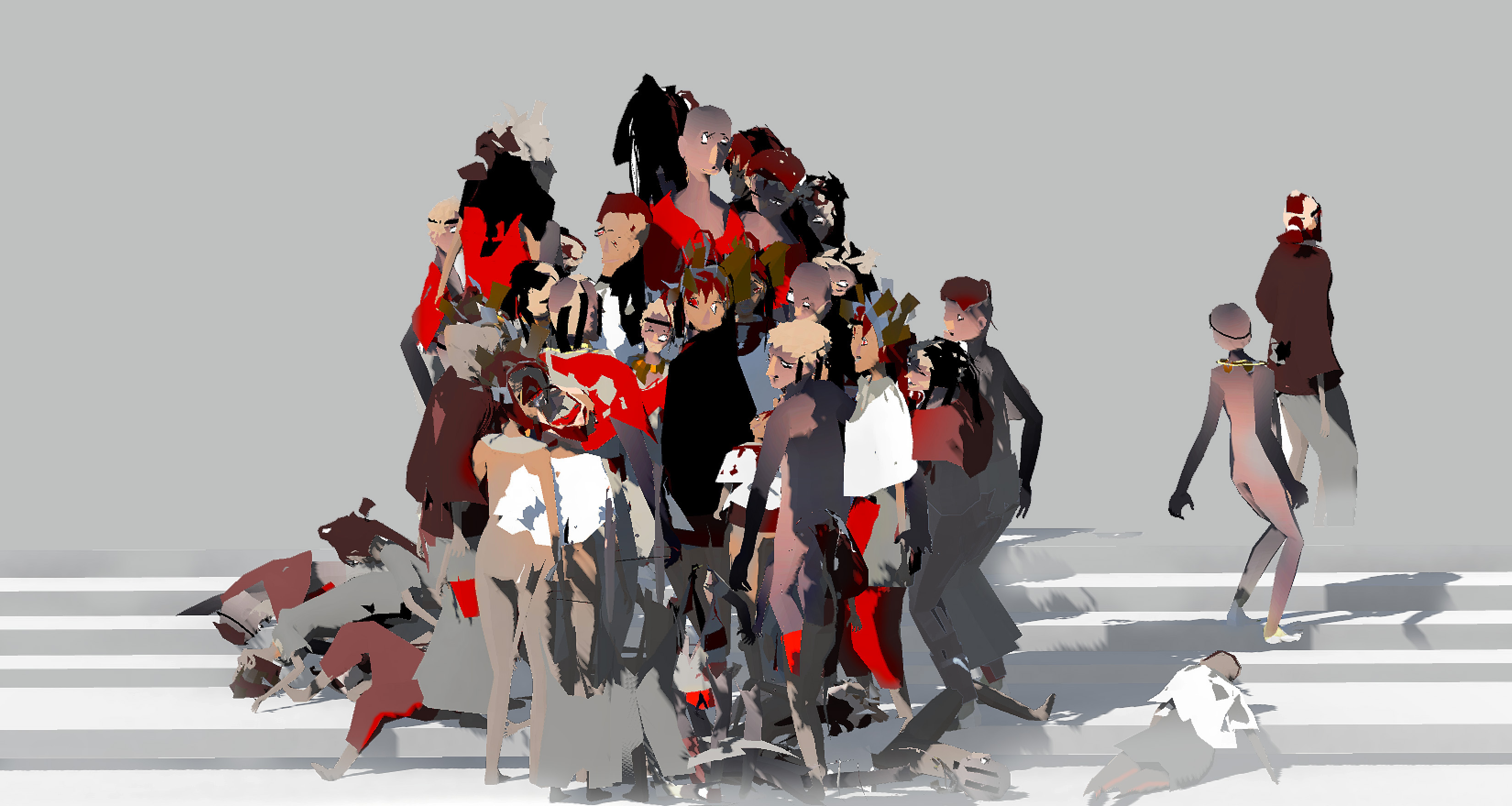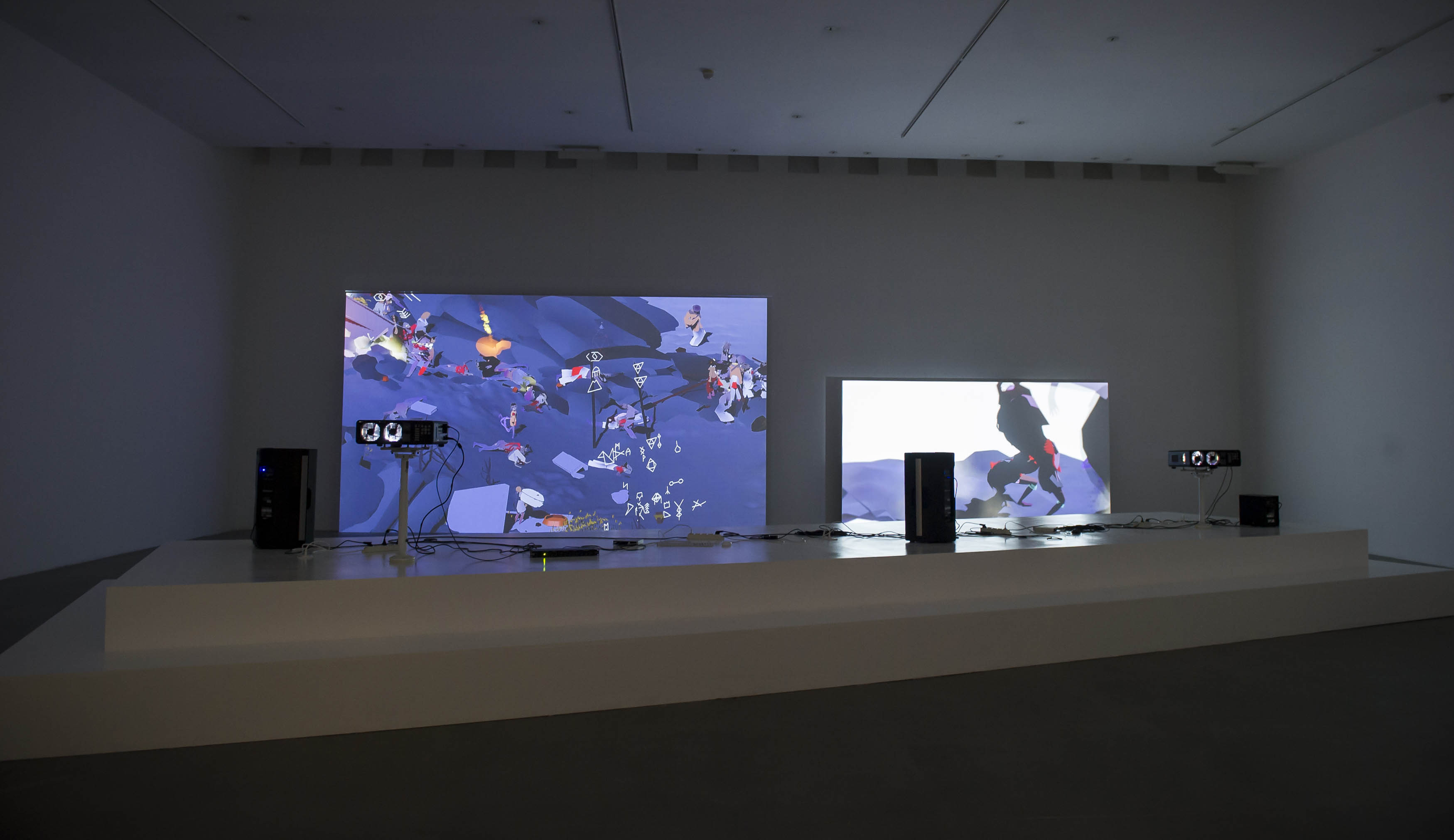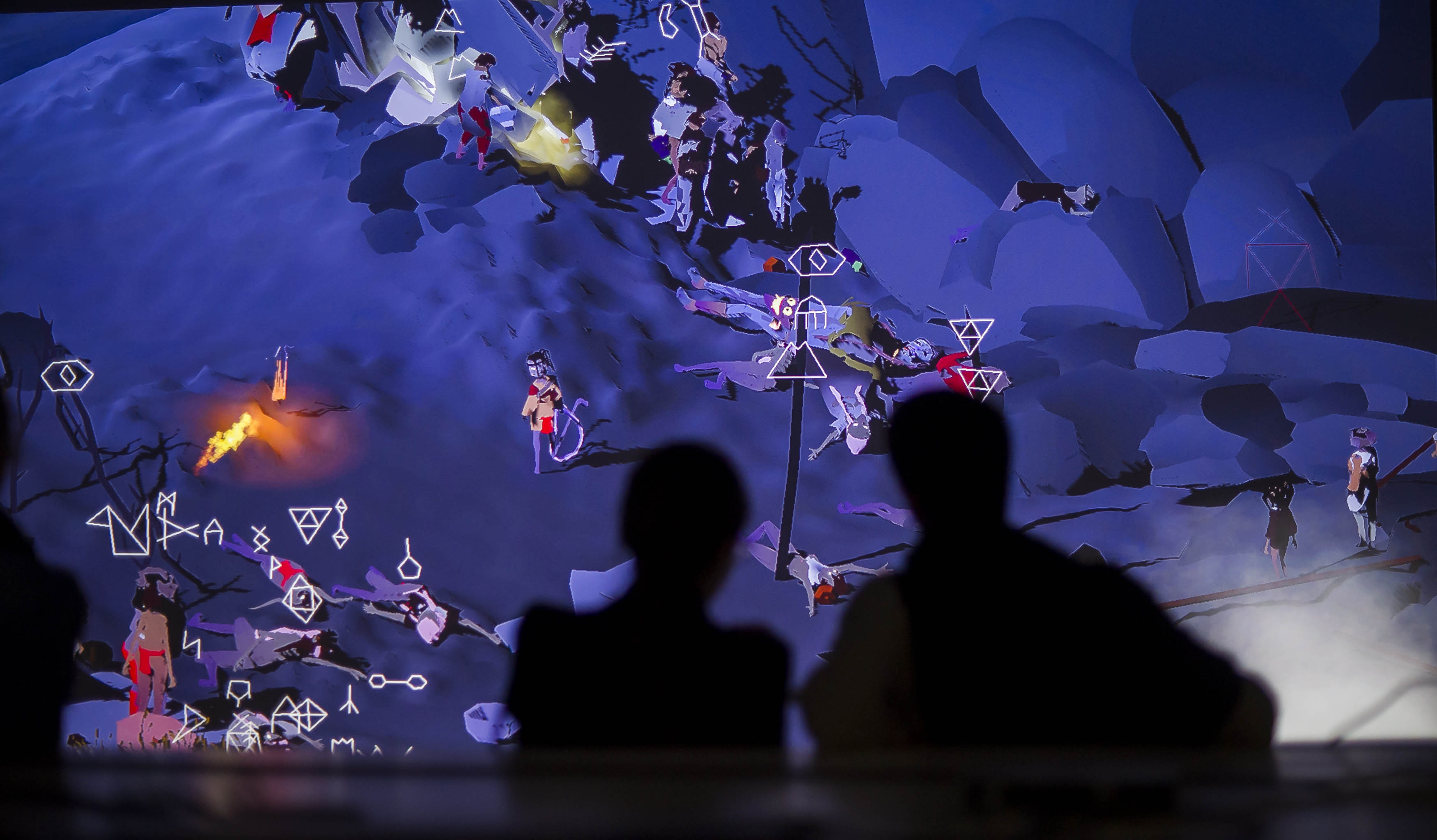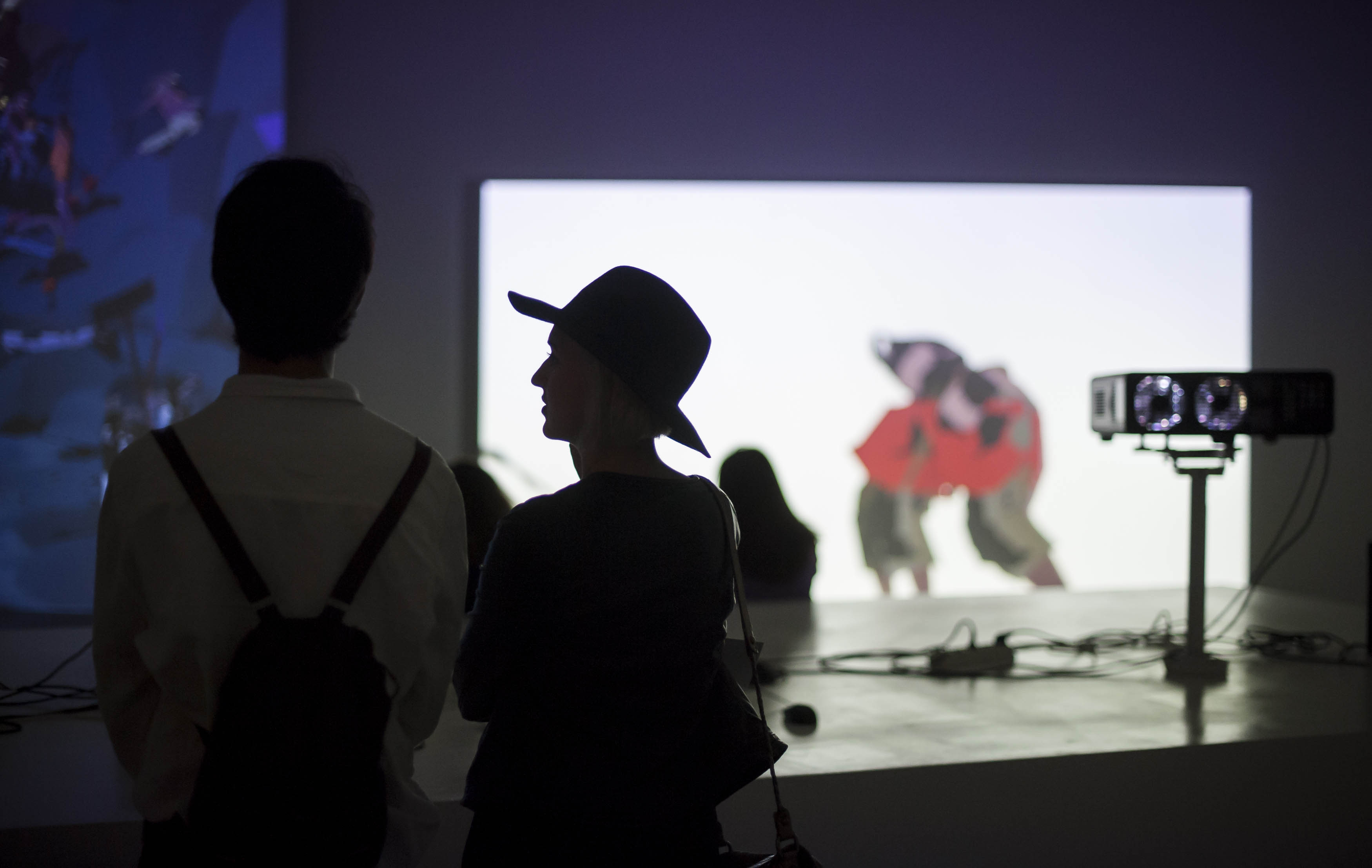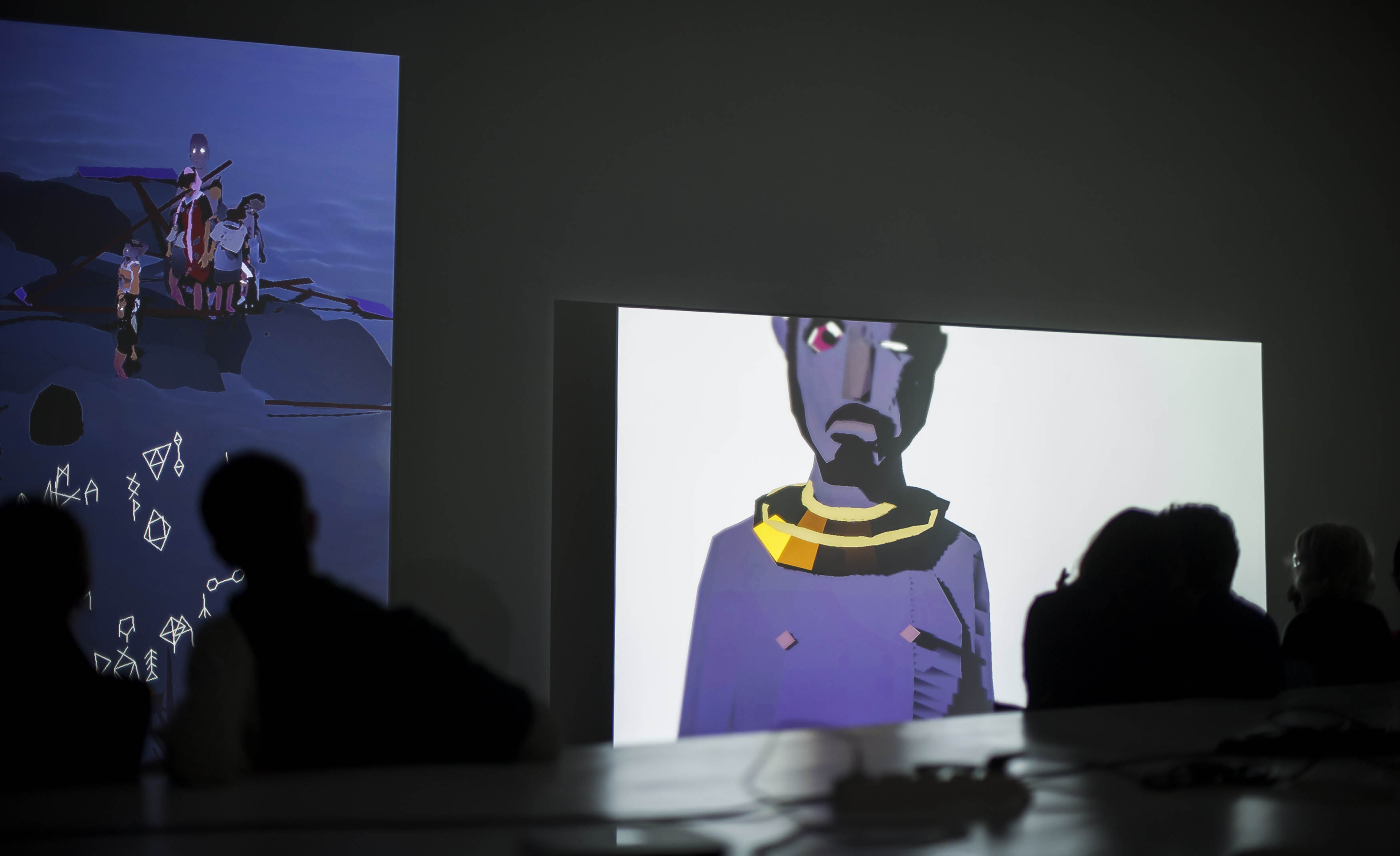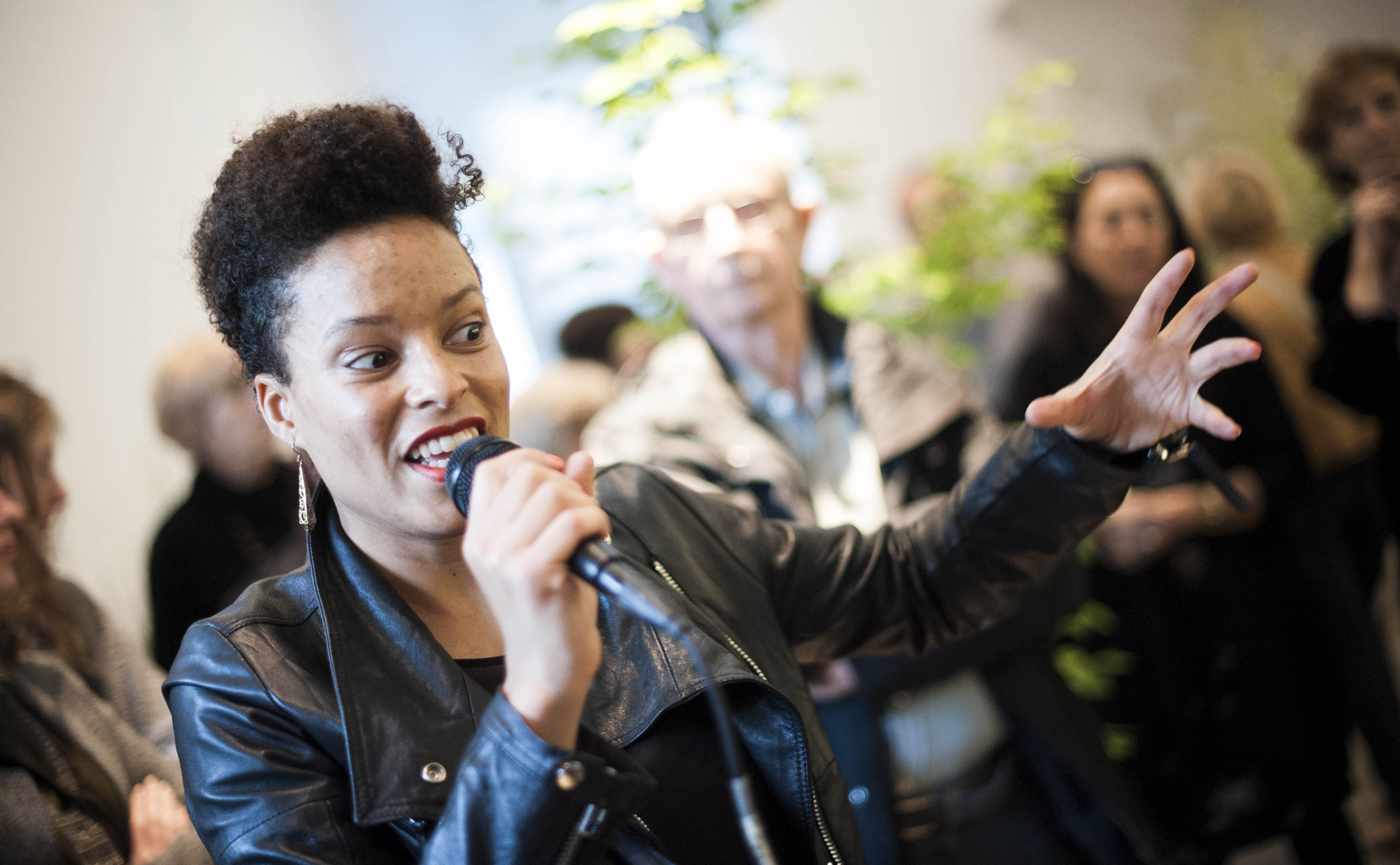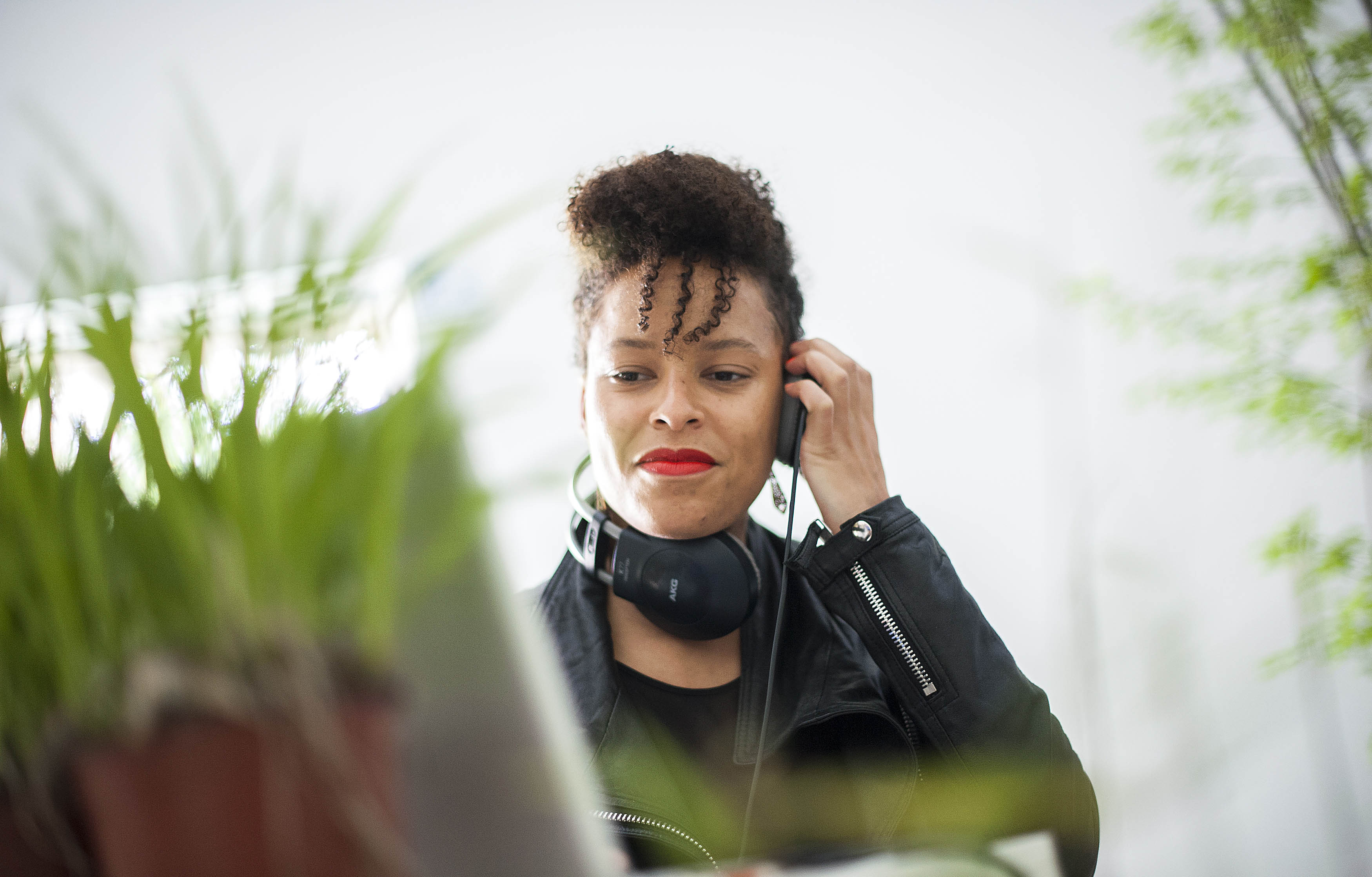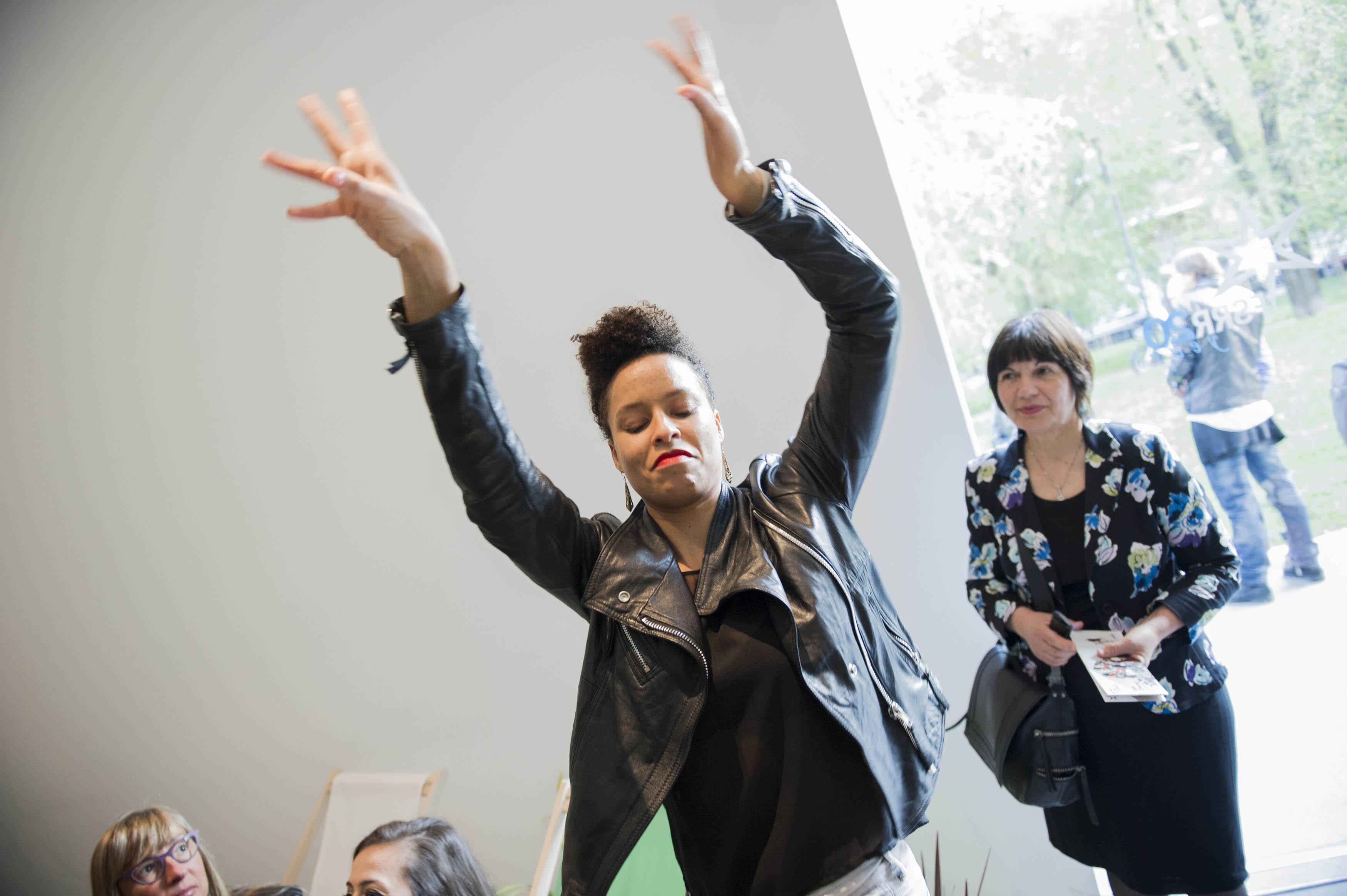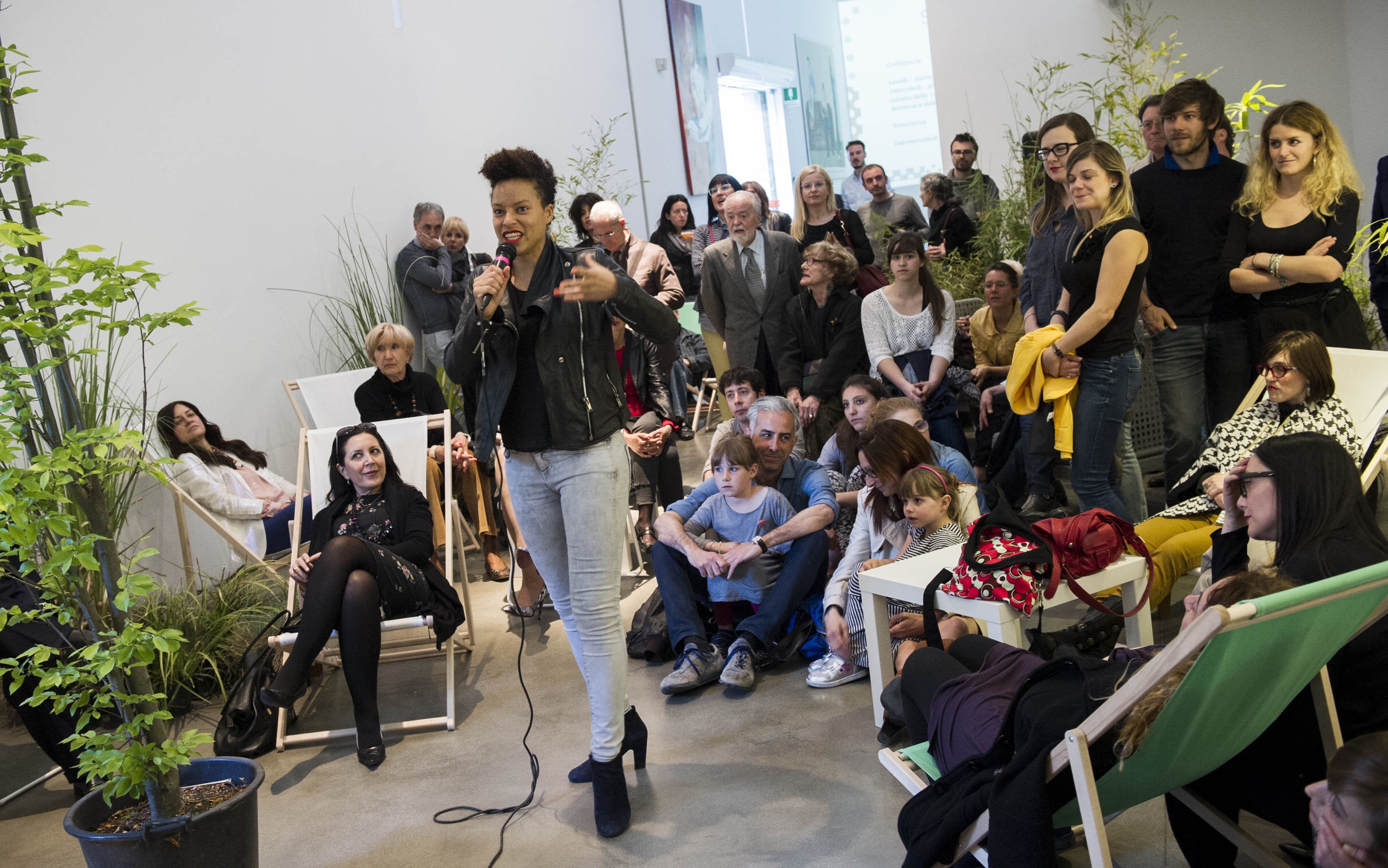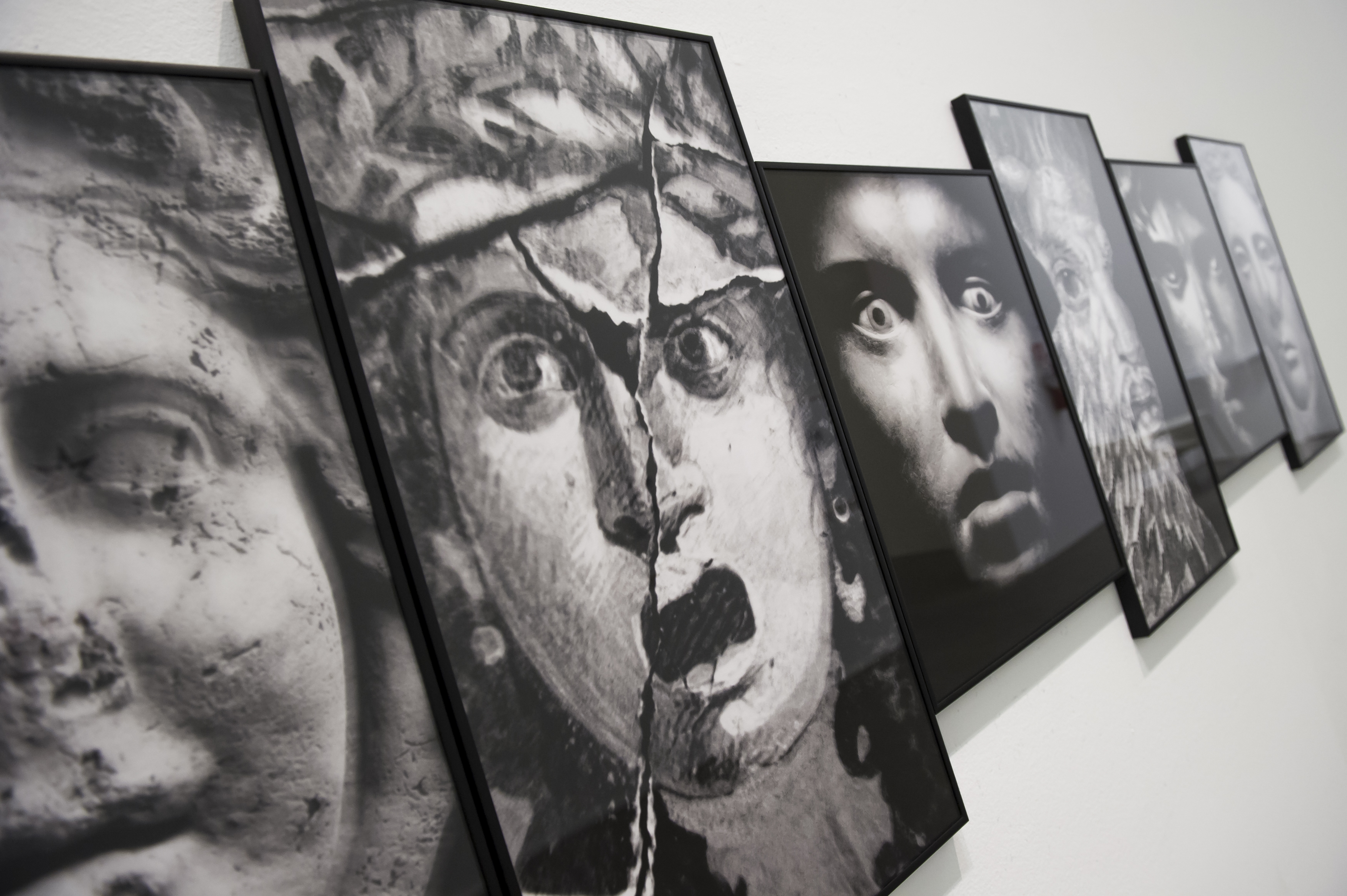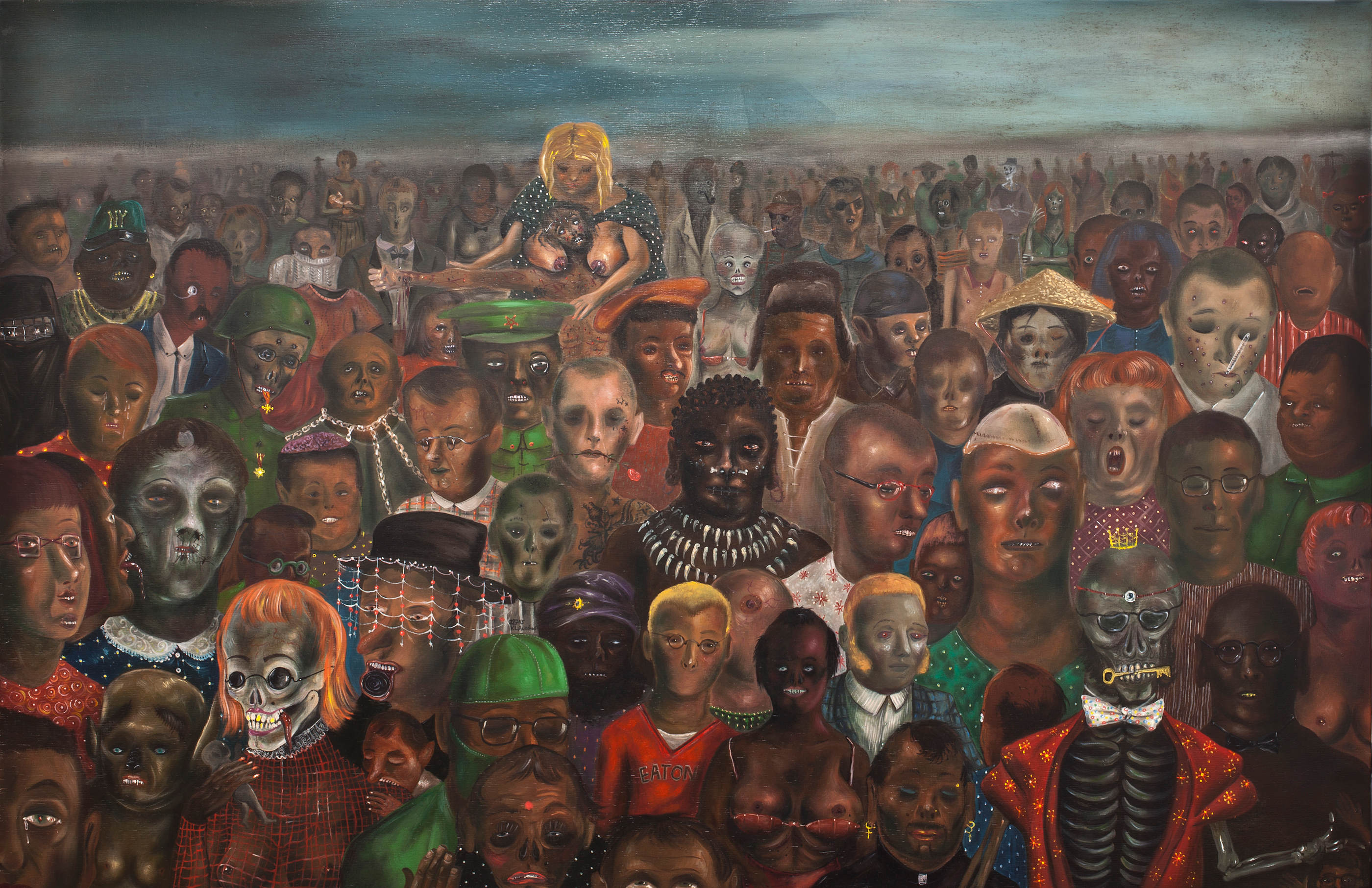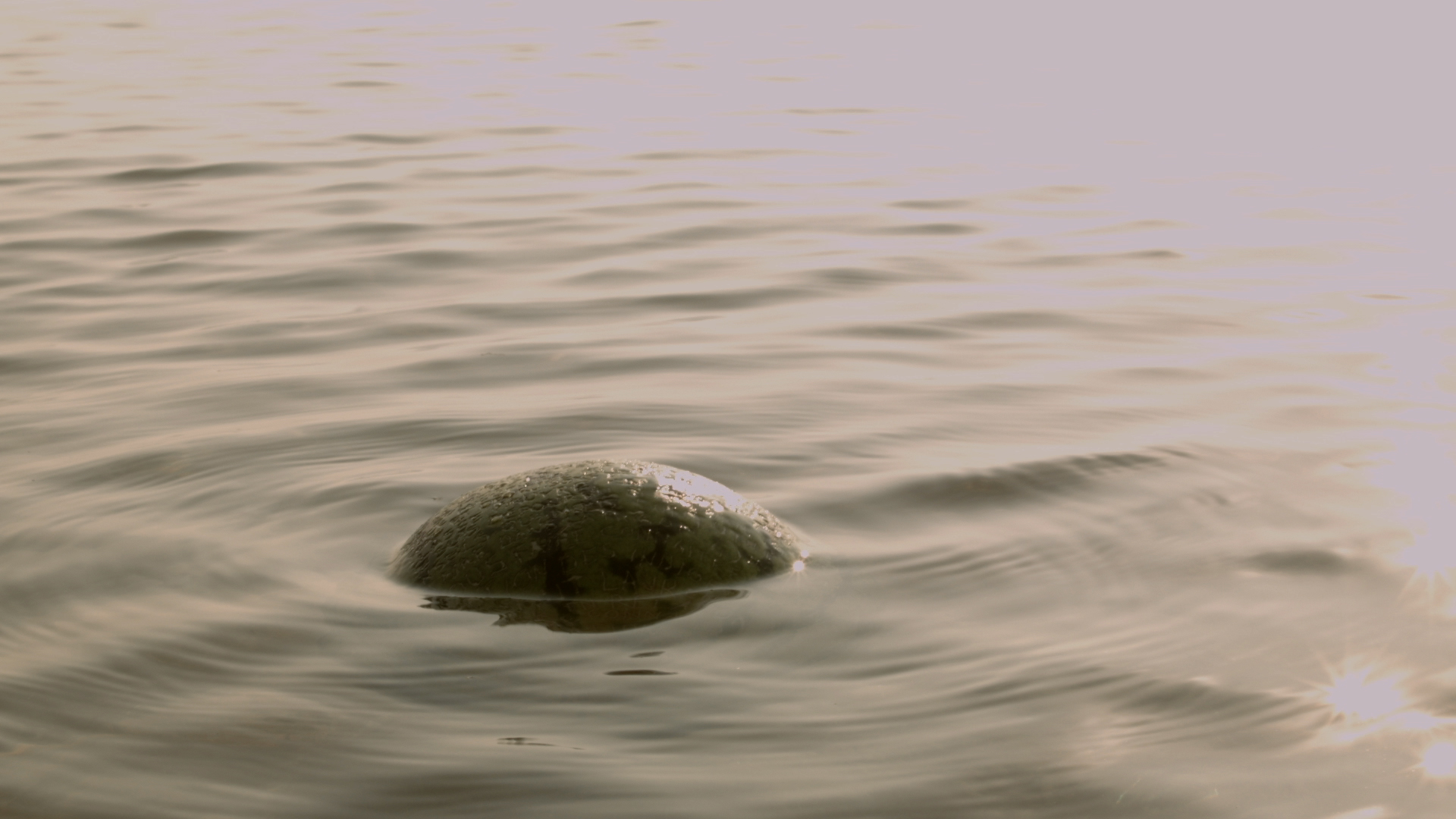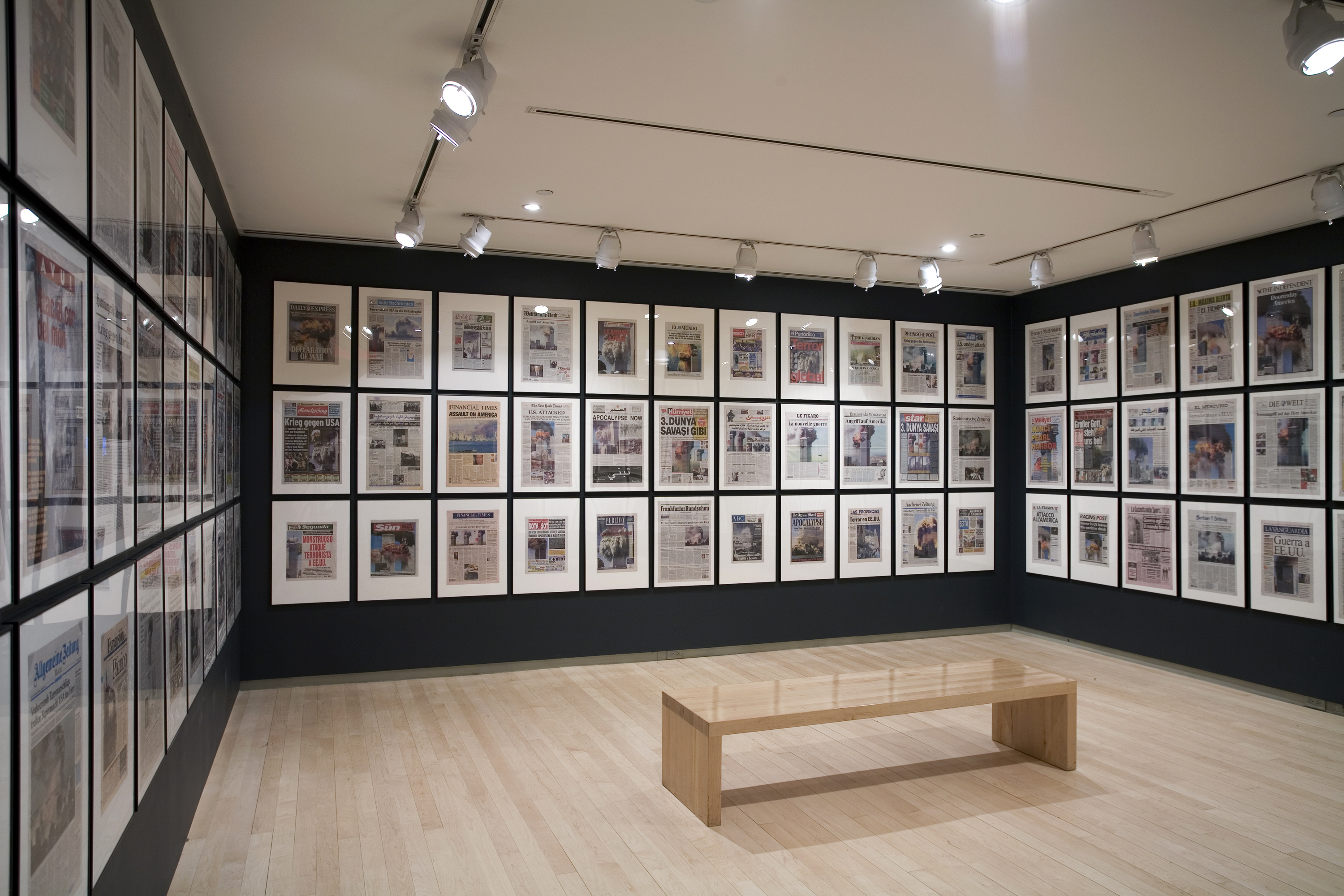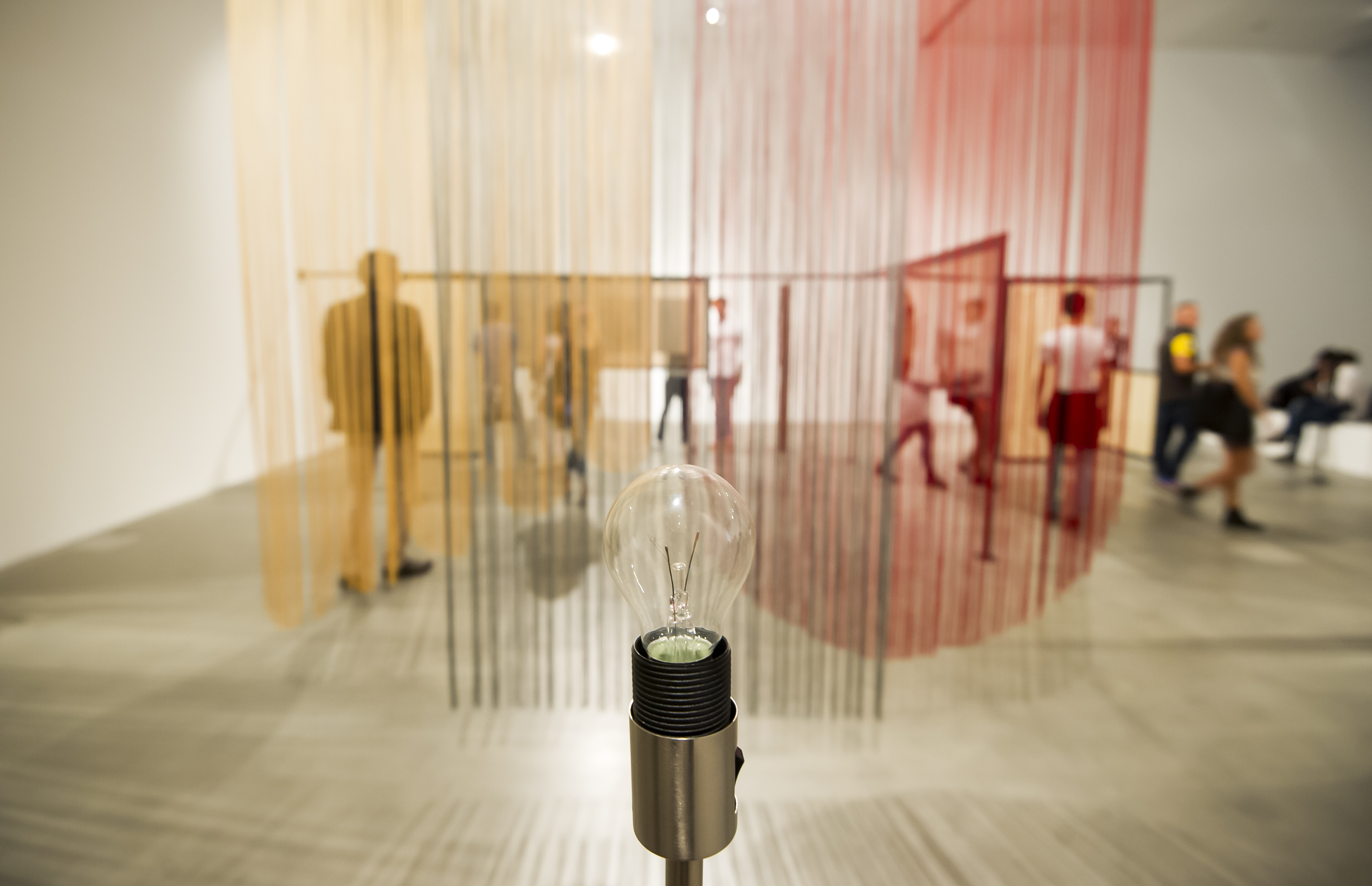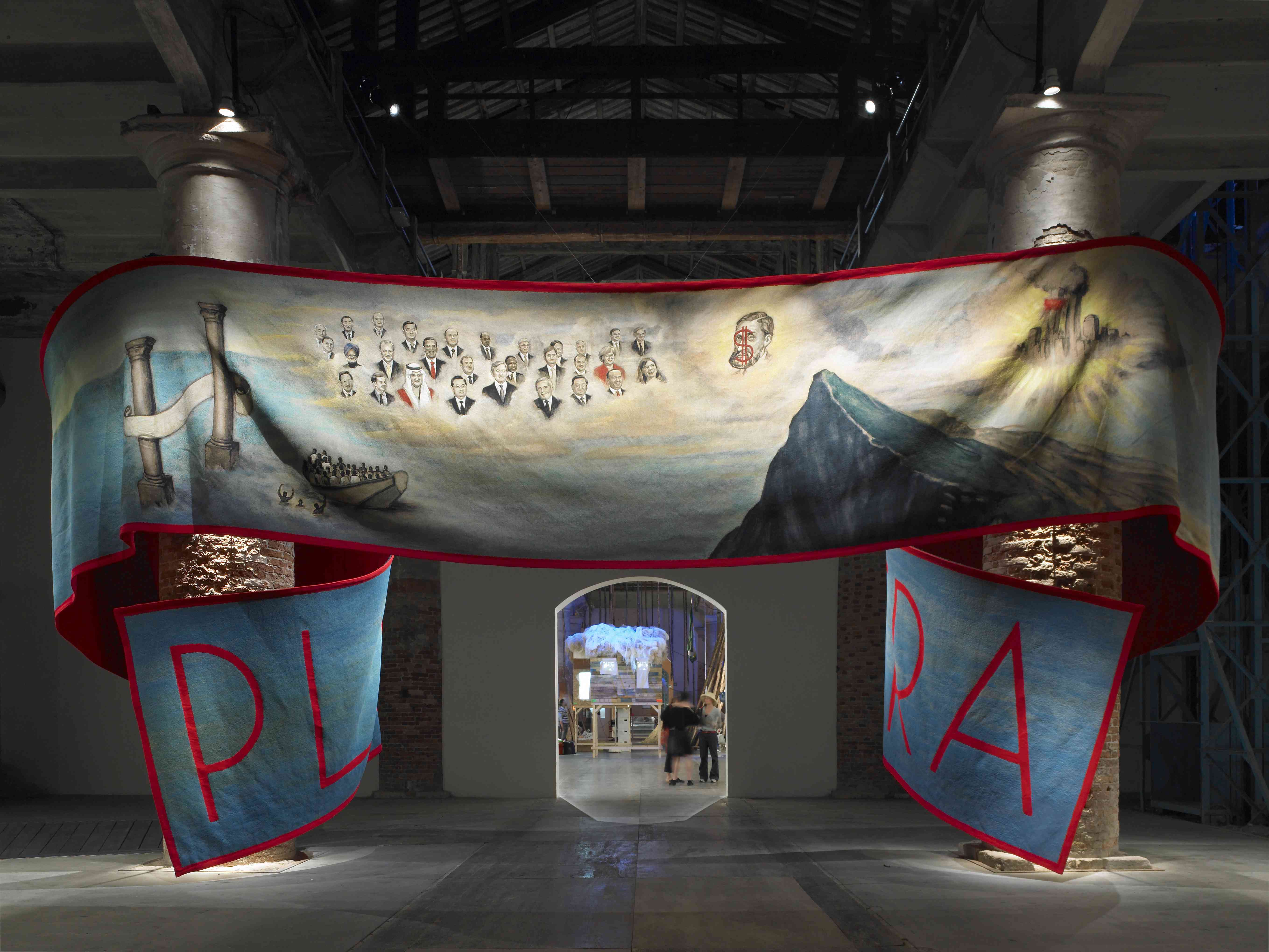Ian Cheng's work explores the nature of mutation and the capacity of humans to relate to change. In his live simulations, familiar objects are programmed with basic properties, but are left to influence each other without authorial control or end. What results are often unpredictable emergent behaviors that ceaselessly combine and disassemble within a living virtual ecosystem. Algorithmic modeling, game design, and principles of improv inform Cheng’s work and serve as technologies to render sacred human dignities and habits as raw material for mutation. Cheng sees his simulations as a kind of neurological gym in which art becomes a means to deliberately exercise the feelings of confusion, anxiety, and cognitive dissonance that accompany moments of change.
Emissary in the Squat of Gods, 2015, is the first episode in a new series of works dedicated to the history of cognitive evolution, past and future. Inspired by the controversial writings of American psychologist Julian Jaynes, the work begins from the premise that ancient humans were not conscious. During moments of stress, a preconscious human would experience right-brain vocal hallucinations of past authorities -- parents, rulers, celebrities -- who in turn animated the body into reaction against the unknown. Over time these god voices failed to answer to the complexities of a changing world, and in their silence another imperfect decision-making technology called consciousness grew.
Emissary in the Squat of Gods is composed of two contradictory forms: a simulation of an ancient community facing a geological threat; and a deterministic story of an emissary’s emerging consciousness. Pushed together to occupy the same landscape, each form threatens to destabilize and mutate the other. Here, a story may escape its classical fixity and indefinitely procrastinate its conclusion. A simulation may find itself sculpted by narrative needs into stable sequences of chaos. A sudden pattern of feelings may grow inside you and without you.
Ian Cheng was born in Los Angeles in 1984. He lives and works in New York. Recent solo exhibitions include Real Humans (with Wu Tsang and Jordan Wolfson), Kunsthalle Dusseldorf, 2015; La Triennale di Milano, 2014; Baby ft. Bali, Standard (Oslo), 2013; Entropy Wrangler, Off Vendome, 2013; This Papaya Tastes Perfect, Formalist Sidewalk Poetry Club, 2011. Recent group exhibitions include Taipei Biennial, 2014; 12th Lyon Biennial, 2013; ProBio, MoMA PS1, 2013; A Disagreeable Object, Sculpture Center, 2012.
